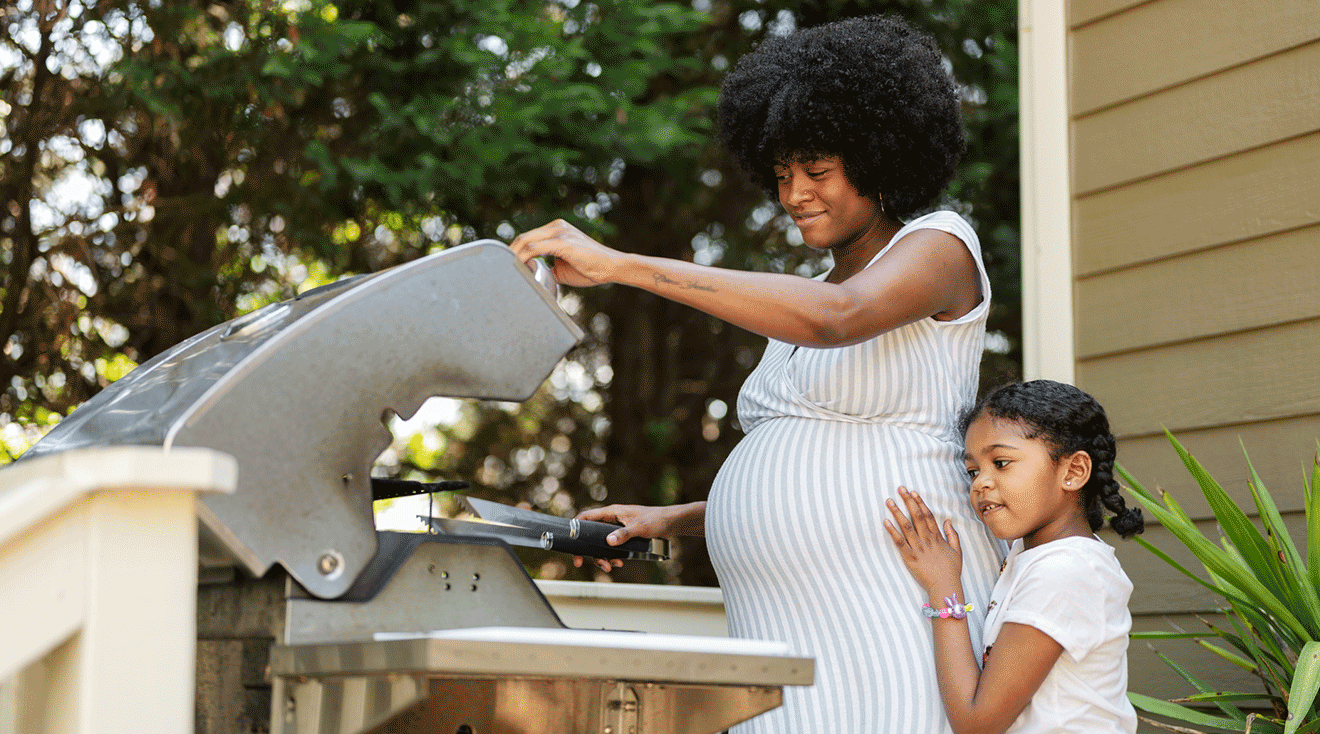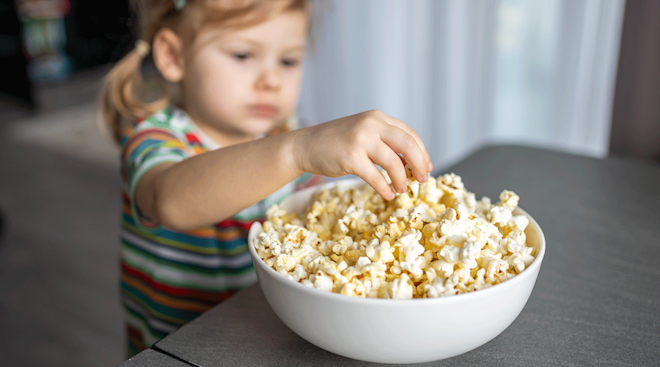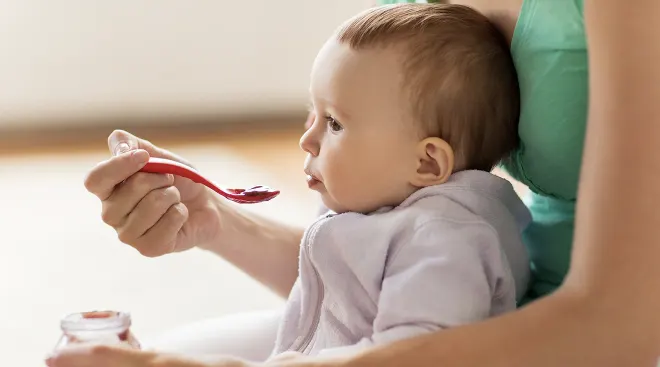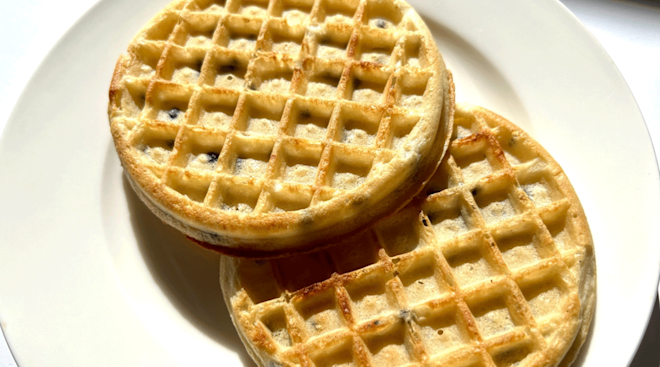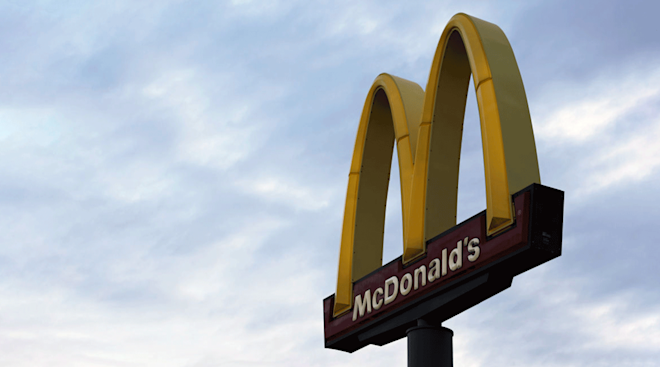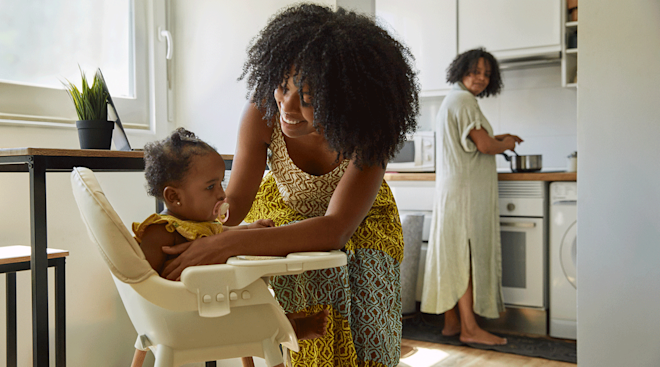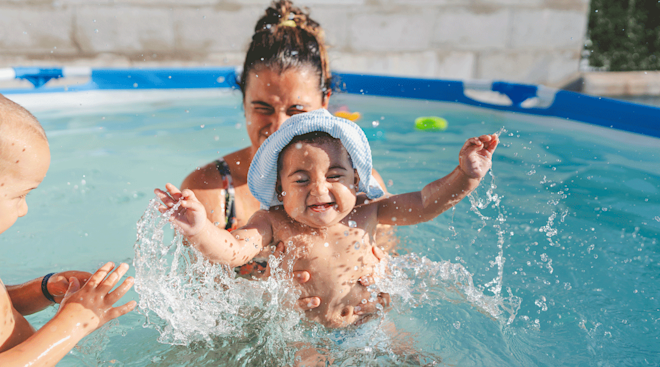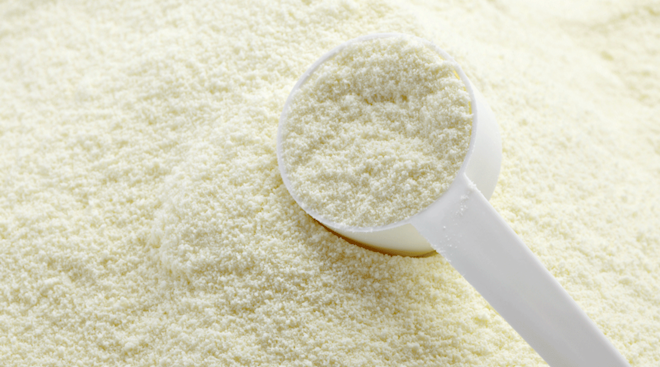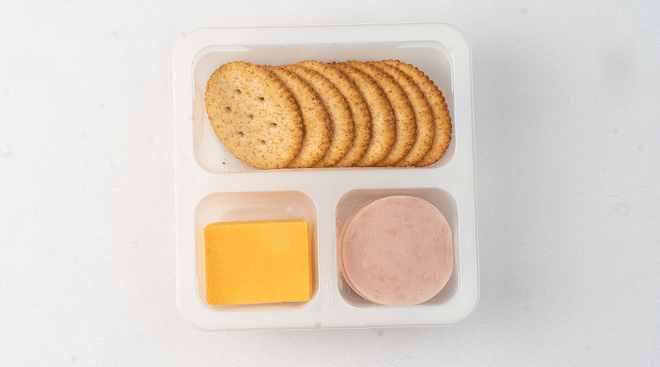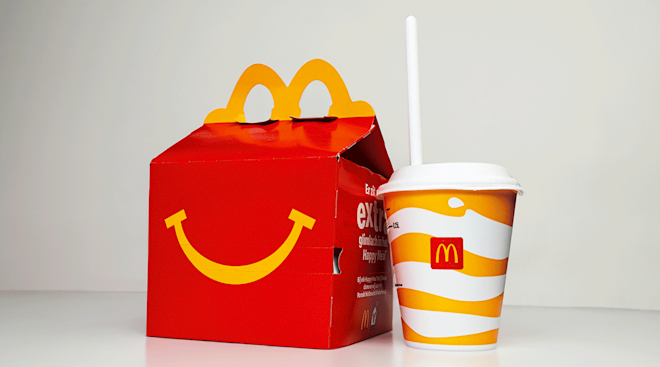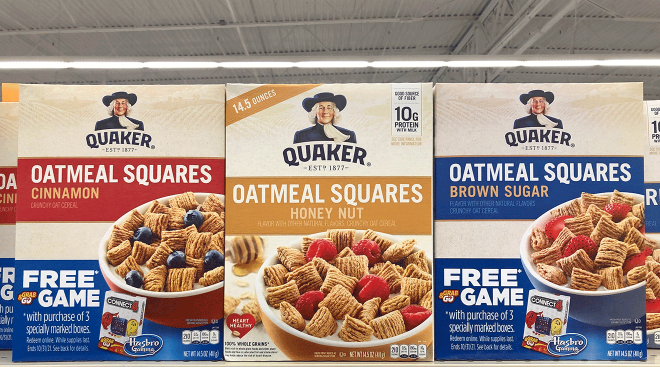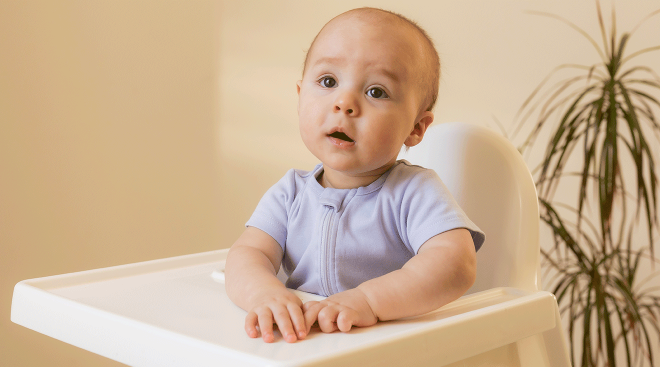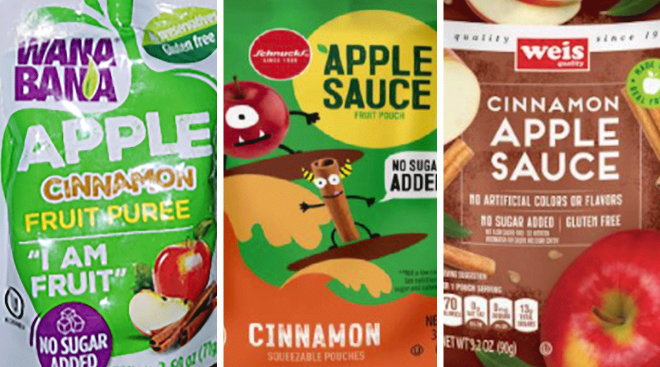10 Summer Food Rules to Follow While Pregnant
Summer is a season many look forward to, complete with backyard barbecues, picnics, beach days and road trips. But, while these quintessential summer activities can be lots of fun, pregnant people and moms-to-be need to take extra precautions when it comes to food safety. Here, experts break down the foods that pose the most risk during summertime—and how you can keep yourself and baby safe.
Summer Foods to Avoid
The list of food to avoid during the summer months will look similar to the list of foods to avoid throughout pregnancy overall. But summer brings hotter temperatures and an increased risk of foodborne illness. “Bacteria grows faster in hot weather and food spoils much faster,” explains Meleen Chuang, MD, an ob-gyn and medical director of women’s health at the Family Health Centers at NYU Langone. This bacteria includes listeria, toxoplasma gondii, E. coli, salmonella and more, all of which can lead to foodborne illness that pregnant women are at an increased risk for due to their naturally weakened immune systems.
Foodborne illness, such as listeriosis can have serious adverse effects during pregnancy, including premature birth, low birth weight, miscarriage and stillbirth. This sounds incredibly scary, but rest assured the chances of you coming down with any foodborne illnesses are pretty slim, as long as you take the right precautions and pay close attention to how your food is prepared, stored and transported. Here’s what to avoid and what to consume with caution.
Avoid rare or undercooked meat and seafood
If you like your burger on the rare side, you’re not alone. But while you’re pregnant, make sure any meat (or seafood) you eat is cooked through to prevent getting infected with harmful bacteria like salmonella, E. coli and listeria, Chuang notes. You’ll also want to eat any cooked meat and seafood right away rather than letting it sit, adds Courtney Pelitera, MS, RD, CNSC, a registered dietitian with Top Nutrition Coaching. (On a related note, Pelitera adds that eggs should also be fully cooked to a temperature of 160 degrees Fahrenheit before eating.)
Be careful with deli meats, salads and hot dogs
While perfect for a barbecue or beach day, packaged deli meats and hot dogs can be contaminated with listeria, Chuang says—it’s the only known bacterium that can survive at refrigerator temperatures of 40 degrees or less. If you’re desperate for a ham sandwich or a hot dog, heating them to 165 degrees until they’re steaming will kill the bacteria. But for prepared deli salads, it may be best to steer clear of the deli counter in general. Sure, pre-made egg salad, potato salad and coleslaw make planning a picnic a snap, but you don’t know how long the foods have been in the refrigerated case, whether the temperature has been at a consistent 40 degrees or less and whether all the ingredients have been pasteurized.
Watch out for pre-cut fruits and veggies
Avoid packaged pre-cut fruits and veggies, since they could also be contaminated with listeria and other bacteria. “We don’t know how long it has been sitting out, and if it’s [been] properly refrigerated,” Chuang says. Per the USDA, fruit that’s left out at room temperature or in the sun also has a higher chance of being contaminated with dangerous levels of bacteria. The same goes for raw sprouts. There’s nothing like a cool, crisp salad on a hot summer day—but leave off the raw bean sprouts. “Raw bean sprouts, alfalfa, clover and radish can have bacteria that gets into the seeds before they even sprout,” Pelitera explains. “This type of bacteria cannot be washed away, so these should be avoided.”
Chuang recommends cutting your own fruit and vegetables the morning of your event and ensuring they’re properly refrigerated before consumption, or sticking to whole fruit. Plus, always give your produce a good, thorough wash before eating, cutting or cooking it. Even if the bag of produce says “pre-washed,” it’s best to wash it again, Pelitera adds.
Skip unpasteurized cheeses and juice
These days it seems like cheese boards are a must for social gatherings, but some soft cheeses, including brie, camembert, bleu cheese, feta and mozzarella, may be made with unpasteurized milk (or raw milk), which can harbor bacteria. If you can, check the label to make sure the cheese is pasteurized. And if it is? Feel free to indulge, Chuang says. But when in doubt, skip it. (Luckily, most cheeses found in US grocery stores are made from pasteurized dairy.)
The same rule of pasteurization goes for juices—if you’re not sure whether freshly squeezed juice from a farmer’s market or roadside stand has been pasteurized, it’s best to skip. Freshly squeezed juices that sit around for longer than an hour are too risky for pregnant women to consume. “Look at the label, if it says raw milk or freshly squeezed, it’s better to avoid,” Chuang explains. She cautions: “Farmers markets often have unpasteurized foods, so…be wary.”
Be cautious with iced coffee
When it’s sticky outside, an iced coffee or iced tea can really hit the spot—and it’s fine to have some caffeine, as long as you’re keeping it to no more than 200 milligrams, or about one to two 8-ounce cups a day (depending on the type of coffee you’re drinking). That said “some iced coffees may contain undercooked or raw eggs, which can pose a risk of Salmonella infection,” Chuang says. If you’re opting for an iced coffee beyond black coffee, such as a Vietnamese iced coffee, it’s best to check with the barista what ingredients are used.
Forget soft serve and some other frozen treats
The risk of bacteria is also present in machines for frozen drinks, milk shakes, soft serve, ice cream and frozen yogurt. They may contain yolk cream or raw eggs in their ingredients, or not get cleaned often, leaving room for bacteria to grow. Chuang recommends avoiding these treats altogether unless you’ve made them yourself or can confirm the ingredients are safe for pregnant women.
Other Summer Food Safety Tips
Alongside paying close attention to the food you’re consuming and ensuring it’s being handled safely, there are other ways to stay safe this summer. Below, experts break down some summer food safety tips to keep in mind.
Pay attention to your hydration
It’s no secret that pregnant women need lots of water to stay hydrated and ensure baby’s well-being. That holds true even more so in the summer, when temperatures are skyrocketing and you’re sweating more than usual. Chuang says to aim for at least 8 to 10 cups each day—but you don’t have to stick to plain water. Below, some easy tips from the experts to help ensure you’re staying hydrating all summer long:
- Utilize hydrating food with higher water content: Fruits and vegetables, such as watermelon, cucumber, strawberries, oranges and lettuce are great examples. A serving of cucumbers (96 percent water) and watermelon (92 percent water) each provides half a cup of fluids, Pelitera says.
- Splash a little fruit juice in club soda seltzer: “This will hit the sweet spot, hydrate and minimize the need for caffeine found in sodas,” Chuang says.
- Watch your caffeine intake: Speaking of caffeine, watch how much you drink, as it can contribute to dehydration, which is the opposite of what you want. Instead, Chuang recommends choosing decaffeinated beverages or some herbal teas.
- Drink electrolytes: Pelitera notes that most pregnant women need additional electrolytes during the summer, especially if they’re sweating more than normal. “You want to look for something with sodium and potassium in it to replace those lost electrolytes,” she says. “This also will flavor the water to help with making it easier to drink.
Pack food smartly during summer travels
Using a cooler and frozen gel packs can help keep perishable foods safe during summer travel and decrease the risk of spoiling due to bacteria. Chuang recommends keeping the cooler in shade whenever possible and avoid opening it too much to maintain its internal temperature. Plus, pack food in individual containers or sealable bags to limit the risk of cross-contamination. “If traveling for an extended period, consider packing non-perishable snacks and shelf-stable foods to reduce the reliance on perishable items,” she adds.
Check your fridge temperatures
Ensuring your food is safely stored isn’t just a concern while on-the-go—it’s also something you’ll want to pay attention to at home. Chuang recommends checking your refrigerator temperature on a regular basis to ensure it’s set below 40 degrees Fahrenheit (4 degrees Celsius) to prevent the growth of bacteria. The good news is “most modern fridges have temperature controls and will alarm when out of [range],” Pelitera adds.
Always practice food safety
The adverse effects of foodborne illness for pregnant women sound scary, but they can be easily avoided with diligent food safety practices. Per the experts, these include:
Washing your hands with soap and water before cooking, during cooking and before eating (and ensuring everyone else cooking is doing the same) Cleaning and sanitizing cutting boards, countertops and utensils after each use to prevent cross-contamination Using a food thermometer to ensure meat and seafood are cooked to safe temperature for consumption Keeping raw and cooked foods separated on surfaces and cutting boards to prevent cross-contamination Not leaving perishable food out in the sun for long periods of time Ensuring perishable foods are kept at below 40 degrees Fahrenheit until you’re ready to eat
Know the signs to look for
Practicing food safety is a great way to ensure you and baby stay happy and healthy, but you also want to know what signs to look for if food has gone bad and isn’t fit for consumption. Chuang says these include:
- If it smells off or has an usual odor
- Visible mold growth on the food
- Slimy or sticky texture
- Unusual discoloration or other changes in appearance
“If there are any doubts about the safety or freshness of a food item, it is best to err on the side of caution and throw it out,” Chuang says. Pelitera agrees, adding that it’s best to avoid eating anything that’s been “sitting out in the hot sun for more than one hour.”
Food safety is a big concern, especially among pregnant women—and with all the outdoor food events during the summer months, it’s important to be cautious and careful. Rest assured, however, that practicing these summer food safety tips can really help keep you and baby safe from foodborne illness. And if you’re ever concerned or have specific questions, don’t hesitate to reach out to your provider.
Please note: The Bump and the materials and information it contains are not intended to, and do not constitute, medical or other health advice or diagnosis and should not be used as such. You should always consult with a qualified physician or health professional about your specific circumstances.
Plus, more from The Bump:
Meleen Chuang, MD, is an ob-gyn and medical director of women’s health at the Family Health Centers at NYU Langone. She earned her medical degree from SUNY Stony Brook.
Courtney Pelitera, MS, RD, CNSC, is a registered dietitian with Top Nutrition Coaching with over a decade of experience. She earned her master’s degree in nutrition and dietetics from D'Youville College in upstate New York.
US Department of Agriculture, What is the "2 Hour Rule" with leaving food out?, September 2023
Learn how we ensure the accuracy of our content through our editorial and medical review process.
Navigate forward to interact with the calendar and select a date. Press the question mark key to get the keyboard shortcuts for changing dates.

































